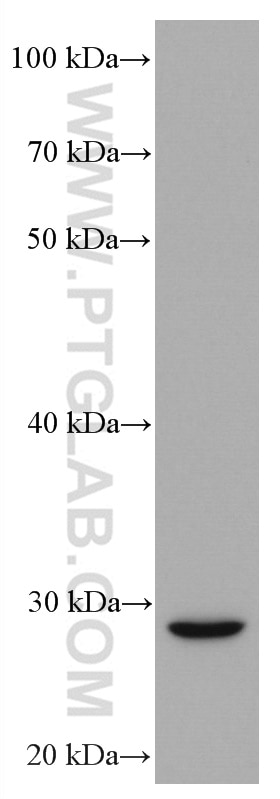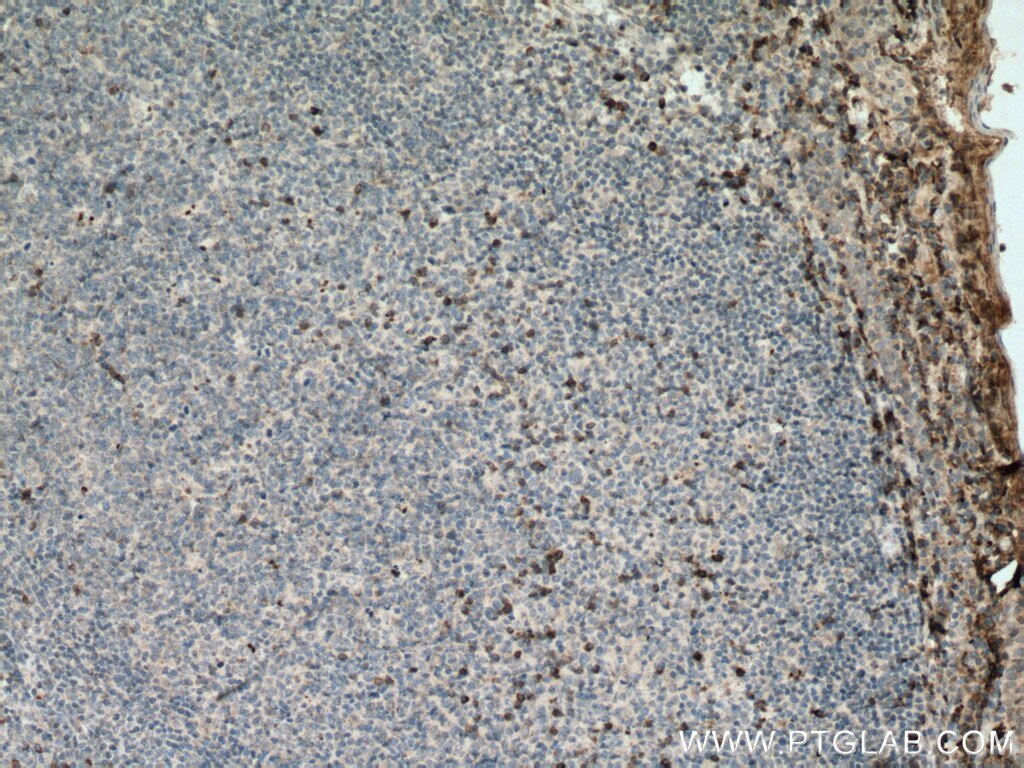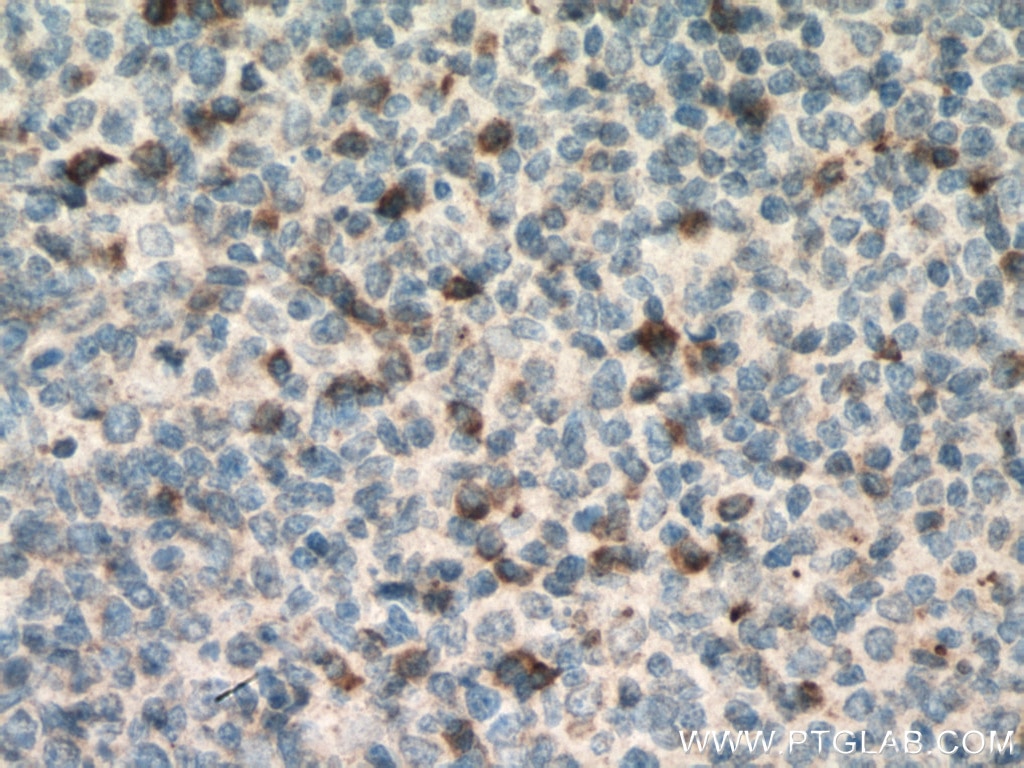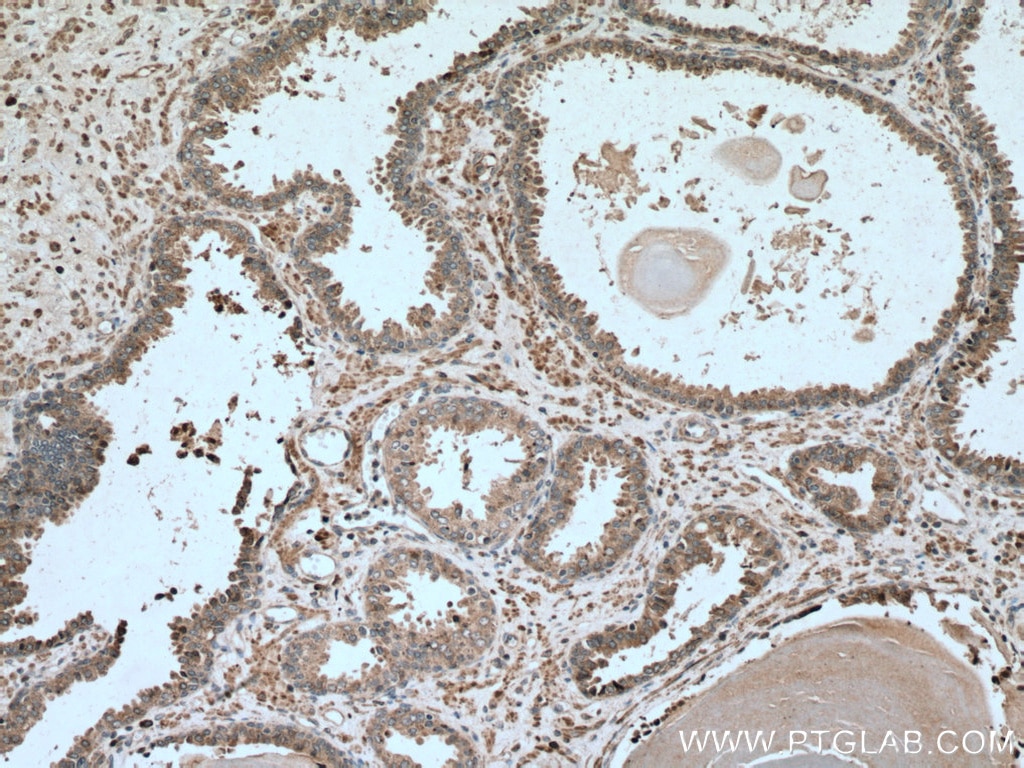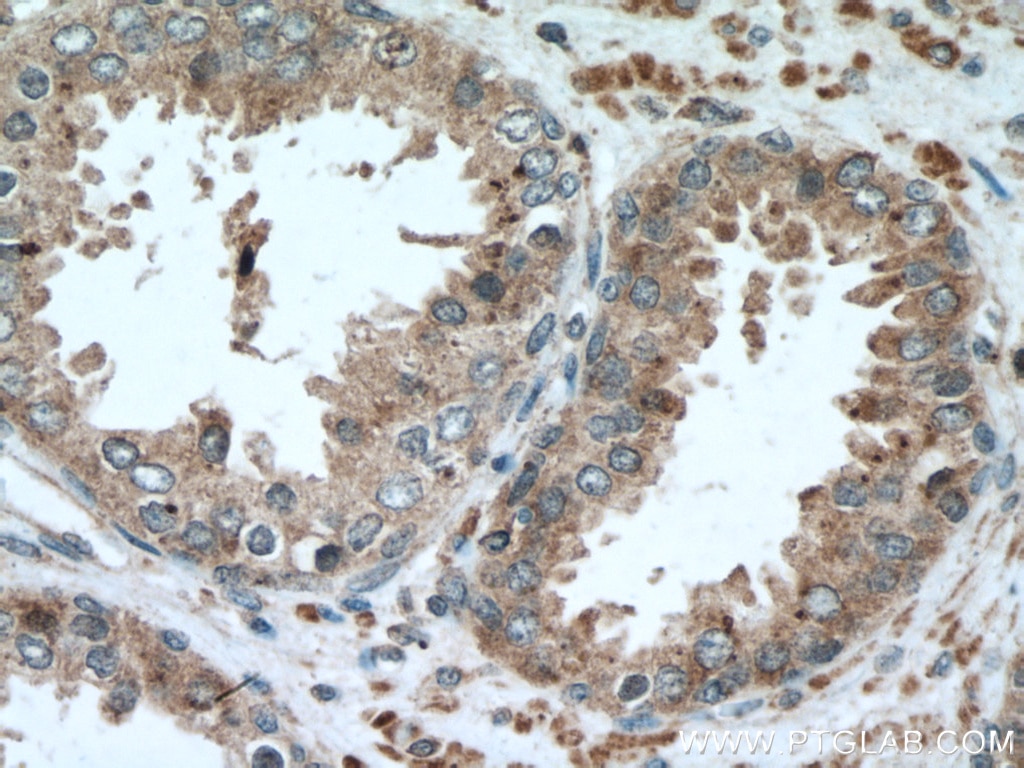Tested Applications
| Positive WB detected in | human milk tissue |
| Positive IHC detected in | human tonsillitis tissue, human prostate cancer tissue Note: suggested antigen retrieval with TE buffer pH 9.0; (*) Alternatively, antigen retrieval may be performed with citrate buffer pH 6.0 |
Recommended dilution
| Application | Dilution |
|---|---|
| Western Blot (WB) | WB : 1:500-1:2000 |
| Immunohistochemistry (IHC) | IHC : 1:50-1:500 |
| It is recommended that this reagent should be titrated in each testing system to obtain optimal results. | |
| Sample-dependent, Check data in validation data gallery. | |
Published Applications
| WB | See 1 publications below |
| IF | See 1 publications below |
Product Information
66756-1-Ig targets TRAIL/CD253 in WB, IHC, IF, ELISA applications and shows reactivity with human samples.
| Tested Reactivity | human |
| Cited Reactivity | human |
| Host / Isotype | Mouse / IgG1 |
| Class | Monoclonal |
| Type | Antibody |
| Immunogen |
CatNo: Ag25746 Product name: Recombinant human TRAIL protein Source: e coli.-derived, PGEX-4T Tag: GST Domain: 39-281 aa of BC032722 Sequence: TNELKQMQDKYSKSGIACFLKEDDSYWDPNDEESMNSPCWQVKWQLRQLVRKMILRTSEETISTVQEKQQNISPLVRERGPQRVAAHITGTRGRSNTLSSPNSKNEKALGRKINSWESSRSGHSFLSNLHLRNGELVIHEKGFYYIYSQTYFRFQEEIKENTKNDKQMVQYIYKYTSYPDPILLMKSARNSCWSKDAEYGLYSIYQGGIFELKENDRIFVSVTNEHLIDMDHEASFFGAFLVG Predict reactive species |
| Full Name | tumor necrosis factor (ligand) superfamily, member 10 |
| Calculated Molecular Weight | 281 aa, 33 kDa |
| Observed Molecular Weight | 28-30 kDa |
| GenBank Accession Number | BC032722 |
| Gene Symbol | TRAIL |
| Gene ID (NCBI) | 8743 |
| RRID | AB_2882102 |
| Conjugate | Unconjugated |
| Form | Liquid |
| Purification Method | Protein G purification |
| UNIPROT ID | P50591 |
| Storage Buffer | PBS with 0.02% sodium azide and 50% glycerol, pH 7.3. |
| Storage Conditions | Store at -20°C. Stable for one year after shipment. Aliquoting is unnecessary for -20oC storage. 20ul sizes contain 0.1% BSA. |
Background Information
TNFSF10/TRAIL (tumor necrosis factor superfamily member 10) is a typical death ligand expressed on natural killer cells and cytotoxic T lymphocytes. This protein preferentially induces apoptosis in transformed and tumor cells, but does not appear to kill normal cells although it is expressed at a significant level in most normal tissues. TNFSF10 induces apoptotic cell death in cancer by binding to its functional death receptors, death receptor (DR) 4 (TNFRSF10A/TRAIL-R1) and DR5 (TNFRSF10B/TRAIL-R2) to activate the extrinsic apoptosis pathway. TRAIL also activates c-Jun N-terminal kinase (MAPK8/JNK) and the transcription factor nuclear factor-κB (NFκB). The binding of this protein to its receptors has been shown to trigger the activation of MAPK8/JNK, caspase 8, and caspase 3.
Protocols
| Product Specific Protocols | |
|---|---|
| IHC protocol for TRAIL/CD253 antibody 66756-1-Ig | Download protocol |
| WB protocol for TRAIL/CD253 antibody 66756-1-Ig | Download protocol |
| Standard Protocols | |
|---|---|
| Click here to view our Standard Protocols |
Publications
| Species | Application | Title |
|---|---|---|
Adv Healthc Mater TRAIL-Armed ER Nanosomes Induce Drastically Enhanced Apoptosis in Resistant Tumor in Combination with the Antagonist of IAPs (AZD5582). | ||
Cancers (Basel) Extracellular Vesicle Delivery of TRAIL Eradicates Resistant Tumor Growth in Combination with CDK Inhibition by Dinaciclib. | ||
Front Bioeng Biotechnol The inhibitory effect of human umbilical cord mesenchymal stem cells expressing anti-HAAH scFv-sTRAIL fusion protein on glioma |

